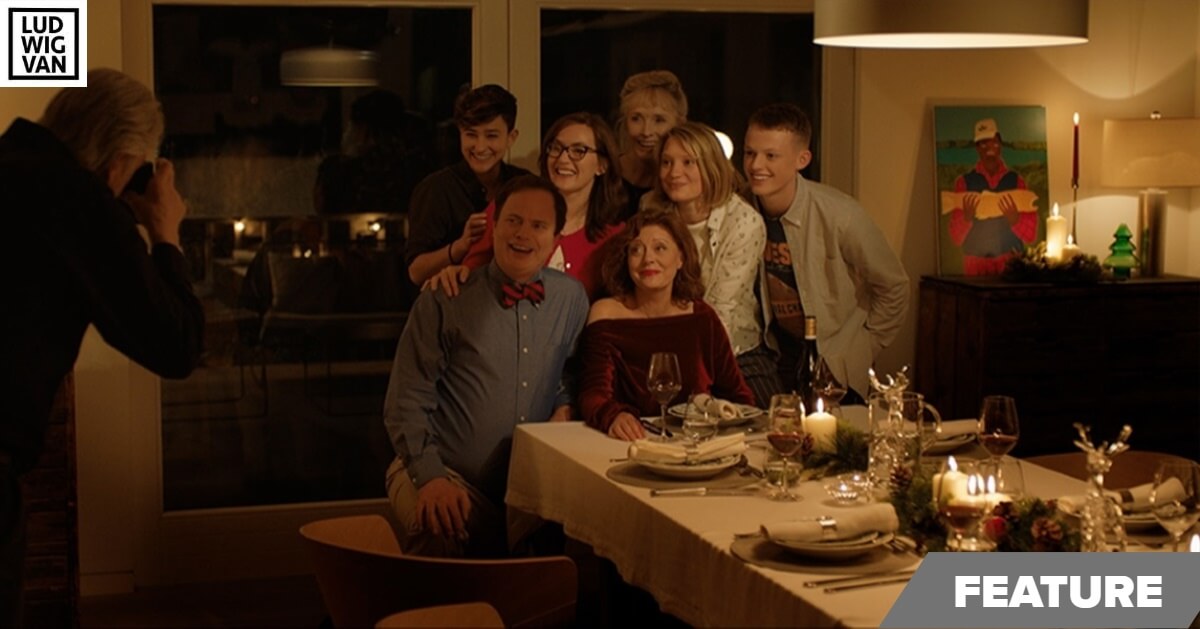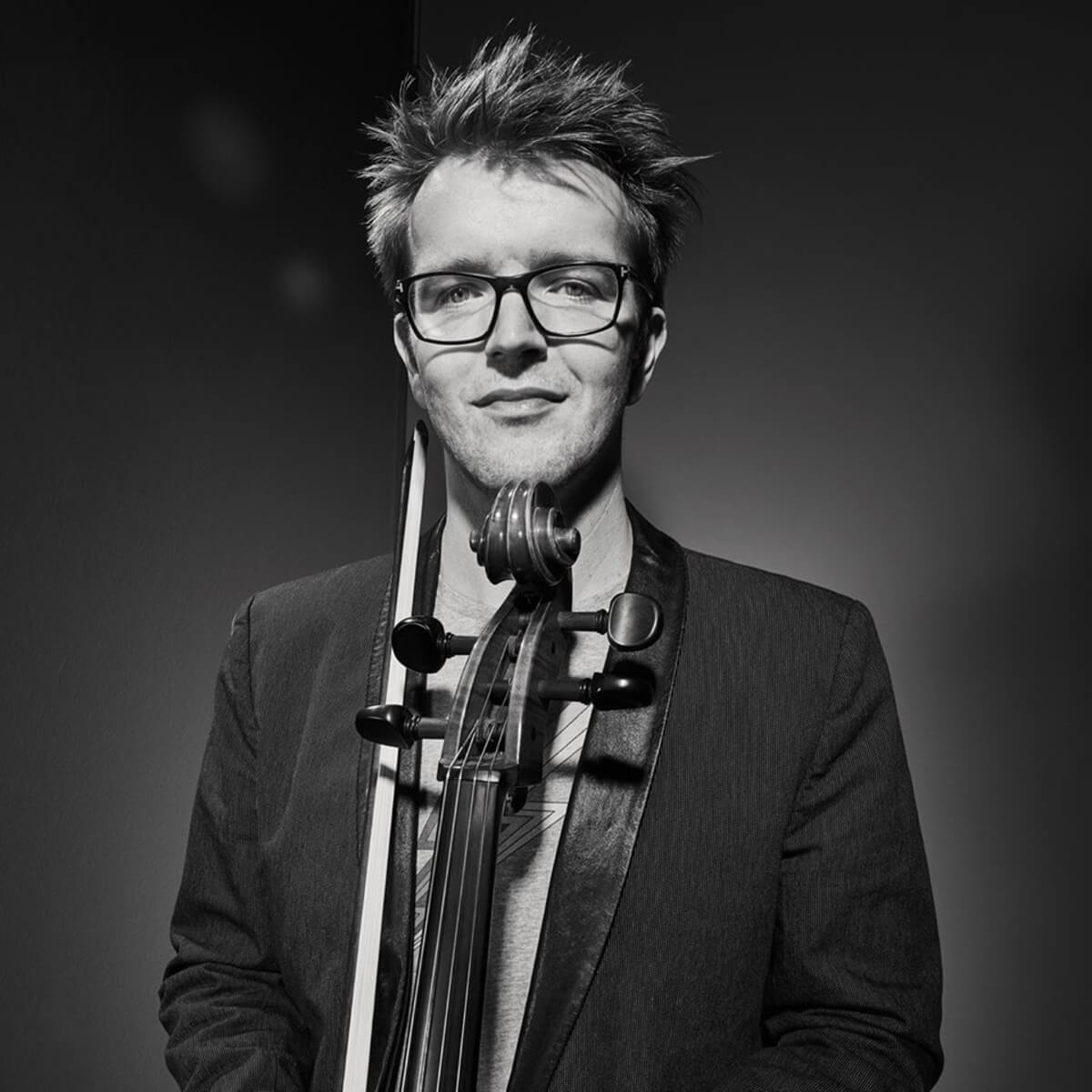Scottish cellist and Deutsche Grammophon artist Peter Gregson talks about his rising career as performer and composer, and how both led him to write the score for the new movie ‘Blackbird’.

Classical musician or composer — both are demanding careers that are difficult to launch. Scottish cellist and Deutsche Grammophon artist Peter Gregson has managed to juggle both, with a rising profile in the field of movie music. He came to Toronto recently to attend the world premiere of ‘Blackbird’ at the Toronto International Film Festival, for which he wrote the original music.
Directed by Roger Michell, (‘My Cousin Rachel’, ‘Le Week-End’), Blackbird is a remake of a 2014 Danish movie called ‘Silent Heart’, with a high profile cast. Susan Sarandon stars as a mother who is terminally ill. She invites her family to their traditional country home for one last full gathering, but her hopes of a sentimental farewell are disrupted by simmering tensions between siblings played by Kate Winslet and Mia Wasikowska.
With the theme of the movie, heightened emotion was the overriding principle. “It really packs a punch,” Gregson says. How he came to the music for the film, and this point in his rising career, is a case of one thing led to another.
Gregson has been playing cello since the age of four. His bio claims that he was inspired by seeing James Bond use a cello case to essentially snowboard down a mountain in ‘The Living Daylights’. As a cellist, he’s been recording since 2007, and released his own debut album ‘Terminal’ in 2010, followed by ‘Lights in the Sky’ in 2014, and ‘Touch’ in 2015. ‘Lights in the Sky’, an electro-acoustic album of cello music, led to a commission to write music for a video game. As a solo musician, he has played on many movie and TV projects through Hans Zimmer’s Remote Control Productions, including the films ‘Wonder Woman’ and ‘Terminator’, and the TV series ‘Marcella’. He also played on Ed Sheeran’s album ‘÷ (Divide)’.

While he was enthusiastic from the beginning, however, his relationship with the cello wasn’t always without its bumps, especially once he reached high school. “One realizes that playing the cello wasn’t the sexiest thing you could do,” he laughs.
A brother played electric guitar, and had a collection of pedals and effects. “I got interested in putting the cello through simple things like a distortion pedal,” he says. “It’s like a string instrument synthesizer.”
As a preteen, he connected with Philip Sheppard, a fellow cellist, composer, and cello experimentalist. Gregson says he was about 13 years old when he realized he would have to write the repertoire he wanted to play. He eventually ended up studying under Sheppard in London at the Royal Academy of Music in London, continuing his experiments, and learning, among other things, to compose directly to the computer. “I was really excited by that.”
After launching his performing career, recording and composing soon followed. In 2011, he played two tracks written for him by Max Richter and the late Jóhann Jóhannsson on an EP for the Short Circuit festival. Along the way, he made another valuable connection. “I was working with Gabriel Prokoviev,” he recalls. In 2012, he collaborated with Prokoviev — grandson of Sergei — to compose and play on the album ‘Cello Multitracks’. It led to another commission, this one for a ballet called ‘FLOW’ in 2013. “At the debut in a small West End theatre,” Gregson recalls, “there were about 65 people in the audience.” One of those people was a filmmaker who asked him, do you want to write for my movie? The result was the score for Alan Rickman’s ‘Little Chaos’, which also premiered at TIFF back in 2014.
That was followed by ‘Forgotten Man’ with director Arran Shearing in 2017. His ‘Quartets: One’ and ‘Quartets: Two’, both released in 2017, were used as the score for the ballet ‘Eight Years of Silence’ by Cayetano Soto, premiered by Ballet BC.
Around that point, he was approached by Deutsche Grammophon. The iconic classical music label suggested adding to their ReComposed series, which invites electronica and even dance music composers to rework pieces from their formidable catalogue. Gregson chose the Bach ‘Cello Suites’, and he describes his approach as following the basic phrasing, melody, and structure, while finding new angles in and out of the music to explore. ‘ReComposed by Peter Gregson: Bach – The Cello Suites’ was released on Deutsche Grammophon in October 2018.
According to Gregson, it turns out that someone in the crew filming ‘Blackbird’ had picked up the album. “The assistant editor, I think, had heard my music,” he says. They had begun to simply play the CD alongside the daily edits of the footage, and eventually approached Gregson to officially use the music as the score. Gregson became actively involved in the process in February 2019.
With the finished scenes, however, it became clear that simply using the recordings as is wouldn’t work out all the time. Some scenes do use the original ReComposed tracks, while in others Gregson has created new music. He did so with a view to the movie as a whole; the music had to be submerged in the story. “It’s a beautiful, honest story. You don’t want to get in the way of that.” Less is more, in other words, especially in a film with a cast of only eight, which takes place in a house inside of one weekend. There are shifts in tone and emotion, and strong dramatic performances.
The recordings were made with a 14 piece orchestra. “The very opening scene establishes the sound of the movie,” he says. For some parts, Gregson plays a piece with five other cellists that was recorded in a church for the acoustics. Creating mood, while staying in the background of the drama as it plays out is a challenge, one akin to diplomacy. “It was a very intense writing period,” Gregson recalls. “It’s hard to write music that is full bodied, but with that diplomatic sense.”
That includes some scenes where there is no music at all. “We had some really interesting discussions about the absence of music,” he says. “My instinct is always to use less.”
Gregson says he enjoys working with film because of the collaborative process. With a burgeoning career and new family, life for now is crisscrossing the Atlantic for film festivals and performance dates.
#LUDWIGVAN
Want more updates on classical music and opera news and reviews? Follow us on Facebook, Instagram or Twitter for all the latest.
- INTERVIEW | Composer Ari Kinarthy And Director Jeff Lee Petry Talk About Ari’s Theme, Premiering At Hot Docs - April 26, 2024
- PREVIEW | Creators & Performers Natalya Gennadi And Kristine Dandavino Talk About Grandma’s Shawl - April 26, 2024
- PREVIEW | Artistic Director Emily Cheung Dives Into Little Pear Garden Dance Company’s History & 30th Anniversary Peformance - April 26, 2024



